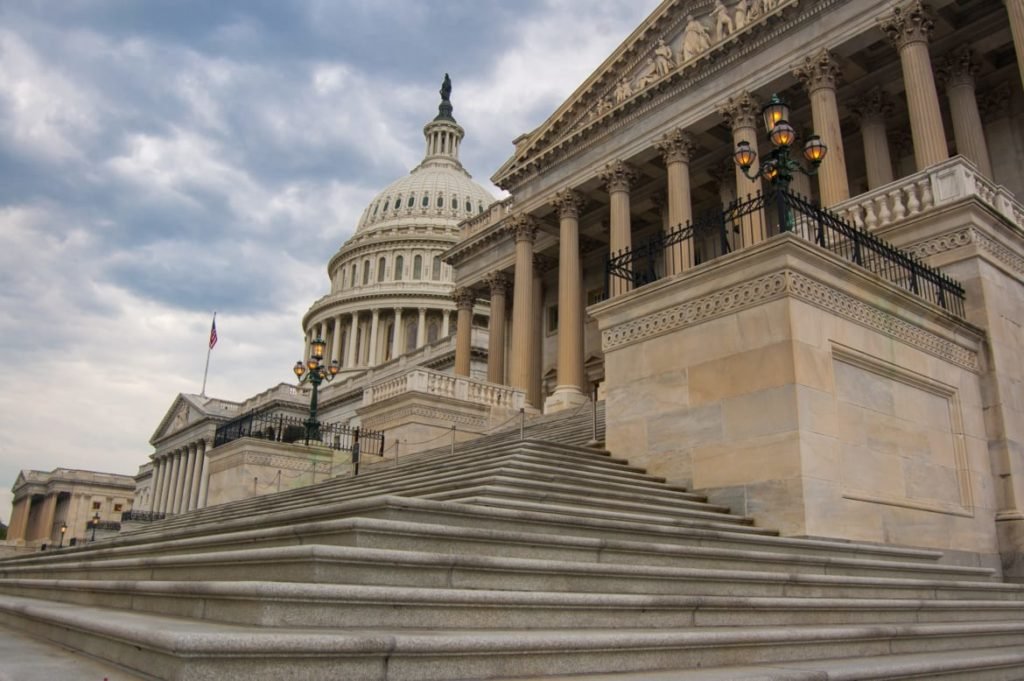The Common Thread of Impeached U.S. Presidents
What separates an impeached president from those that are merely corrupt? As I noted last year when it puzzled me that I couldn't isolate the real red line for Americans, I think I've found a plausible answer.
Though laws for impeachment differ among nations, it seems successful impeachment can only occur when president crosses a line so offensive that it brings unity among opposing political forces. Yet, this line is not necessarily determined by a strict lens of the law since so much is left up to 'interpretation'. It's a line created by what a society is willing to put up with.
Impeachable offenses “proceed from … the abuse or violation of some public trust.”
Alexander Hamilton, Federalist Papers
In 2019, House Speaker Pelosi (D) seemed willing to put up with Trump's corruption for the sake of winning elections. Before being pushed by her members to issue a flaccid impeachment in 2019, she advocated electing Trump out of office vs. impeachment. Senate Majority Leader Mitch McConnell (R) definitely put up with a lot of Trump's seditious acts for his own political power. So what was different about the impeachment of 2021? What determines high crimes and misdemeanors that the majority can get behind?
In South Korea, the impeachment of President Park Geun-hye crossed a line with the bulk of its citizens in mass demonstrations in the capital. Past presidents also engaged in corruption, but why did President Park get impeached during her tenure rather than being jailed after she got out of office which seems the common Korean tradition?
Corruption, cronyism and disregard for human rights, though condemned, doesn't seem to be the red line by themselves in South Korea. It's expected that leaders will enrich themselves and their cabal. It's expected they'll sacrifice one group for the benefit of their chosen. It's the spoils of the victor. But when the corruption is controlled not by the president, but her best friend, it desecrates the office of the president. Yes, I'm saying Korean people can stomach a certain extent of corruption as long as it seems the leader is the one in control and in the 'strong' position. But Korean society absolutely will not accept the president allowing a non-elected friend enriching herself via her own plans. But not only that, the corruption must be visceral and jealousy inducing.
President Park's friend, Choi Soon-sil was portrayed as a parasite who bribed corporations to fund Choi's foundations. Moreover, Choi was described as using the threat of her close relationship to the 'VIP' to slip her daughter into a prestigious university without merits, hang out with boy toys and even snag herself a building in Gangnam. These are the graphic details that spark jealousy. So the red line in South Korea: a weak leader and jealousy over those who use the leader to acquire the most coveted life goals of South Koreans: education, real estate and power.
This red line is not the same in the United States. Since impeachment is such a drastic measure, it's an instrument that has a vague start button and isn't turned on by cold metrics via AI. It's only initiated by its own people after circuitous human debate.
So what gets everyone to push the red button of impeachment? Desecration of the core engine of government. Any society, when measured in its majority, will tolerate an amount of corruption. If the president were the driver of the vehicle of democracy and its citizens the passengers, you can turn a blind eye to adulterated gas, bald tires or broken air conditioning. But when passengers don't want to even step into the car because they see engine malfunction or don't believe the car will even start, then you have to impeach the driver. You have to save the vehicle. You have to save democracy itself.
Trump cheating with a contested phone call to a Ukrainian president was like his speeding on the highway. Illegal, impeachable but passable. Enough people were willing to give him a ticket and move on. Encouraging rioters to storm the Capitol? That's asking the mechanics to deliberately break the engine and carjack the VIP passengers. It was a desecration of the motor of America: the intangible power of American democracy.
Last week I struggled with how President Clinton's blowjob could have the same equivalency in terms of impeachment as Trump's four years. Trump certainly had sex scandals exponentially more salacious. But he didn't have them in the Oval Office that we know of. The impeachment charges against Clinton were lying under oath and obstruction of justice. Who doesn't expect politicians to lie? So what was the real red line? Desecration of the White House's physical space and desecration of its symbolic power around the world. A blowjob in the corridor of the Oval Office threatens to make American democracy itself a joke for America's international friends and especially foes.
Capitol attack? Desecration physically and symbolically. Clinton's blow job? Desecration physically (quite literally on Lewinsky's dress worn in the White House) and symbolically over the embarrassing spectacle.
Nixon's impending impeachment? He could've had those conversations of raiding the DNC and covering up the mess somewhere else. Perhaps that could've been overlooked, especially if he did it by proxy via his 'people'. But the fact that he had these conversations himself at the White House and taped them? The tapes! Desecration of the Oval Office physically. A cheating president revealed that he had to cover up the fact that had to cheat to stay in power? Desecration of the symbolic power of the American president.
President Andrew Johnson
Andrew Johnson's impeachment in 1868? He was breaking the rules of the board game being played right in Washington, DC by sidestepping Senate approval of the Minister of War. He directly fought with Senators over whether he was allowed to unilaterally switch players in his cabinet without their approval. Washington insiders accused him of threatening the co-equal branches of government. He was desecrating the legitimacy of the Senate and the rules of the constitution while causing chaos in the halls of Congress. In those days, I'd count that as a physical desecration. And symbolically? Johnson was seen as desecrating the respect and command of the office of the presidency by veering towards dictatorship.
One important note: the group to whom this red line is valid in the U.S. appears not to be the American public, but the insiders in Washington. Deaths from riotous white supremacists have happened throughout Trump's presidency to non-Washington insiders and outside of the beltway (ex. North Carolina). The desecration didn't target both Republican and Democratic lawmakers in their own house in DC. The Capitol Riot did. Clinton could've had relations multiple times before Lewinsky. But until then, he wasn't caught in front of Washington insiders in their own house (White House). Politicians have long rigged elections and covered up offenses. But Nixon was exposed in front of Washington insiders and brought the crimes into their own house (White House and DNC). Leaders in Johnson's early days of American democracy may have overstepped the line of tyranny and acted with dictatorial mandate. But Johnson brought the fight to Washington insiders in their own house (Capitol).
For the United States to keep operating, the world must have faith that the democratic engine will work and maintain a constant purr with its system of checks and balances. It's what underpins faith in the U.S. dollar. The engine is located in Washington, DC. You can mess with the side mirrors and power seats. You can even mess with secondary engines in other states. But once you threaten the engine at the nation's heart, you're out. That's the red line.






